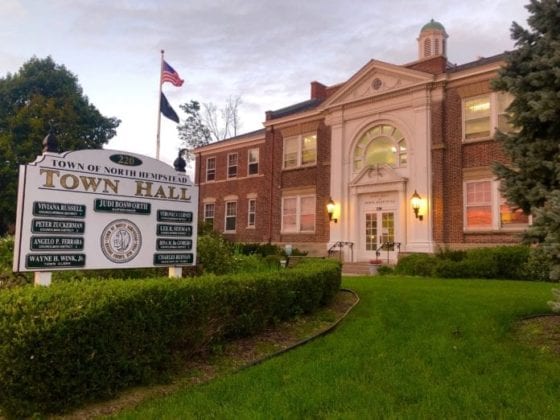The Town of North Hempstead has moved to dismiss a lawsuit from ExteNet Systems.
The wireless infrastructure provider, which had been contracted by Verizon Wireless to build nodes across the North Shore, alleged in the suit, filed in the U.S. District Court for the Eastern District of New York in January, that the town’s council failed to act on the company’s applications within a “reasonable” time frame when the town did not act on its 16 applications for cell nodes in unincorporated areas of Port Washington.
Under Federal Communications Commission rules, municipalities can only cite aesthetics and node locations as valid reasons to reject applications, with other factors like health reasons not allowed for consideration. The rules have not stopped residents on the North Shore from bringing up their concerns over health as a result of the nodes at public meetings and forums.
Albany-based law firm Whiteman, Osterman & Hanna LLP, representing the town, disputed the claim, saying that under town code, which was amended in March 2019, an applicant must have a right-of-way use agreement with the town before it can apply for permits for antennae or special construction.
Attorney Christopher M. McDonald, wrote in court documents dated May 8 that laws “clearly reserved a municipality’s power to manage access” to its right of way.
“ExteNet has chosen to harp on a few facts which, taken out of context, attempt to suggest some nefarious plot on behalf the Town to block or delay ExteNet’s application,” McDonald wrote. “In truth, the Town has been more than patient with ExteNet’s complete disregard for the Town’s procedures and legal obligations.”
ExteNet’s papers call the town code “prohibitory” on the basis that “it mandates an unreasonably long application process, contains discriminatory aesthetic requirements, and has technical requirements, which effectively ban certain technologies.”
Town Supervisor Judi Bosworth discussed the applications’ effect on villages, but not the town’s lawsuit, in her State of the Town address in January. She did not mention ExteNet by name.
“We have heard from many residents who are alarmed at the aggressive tactics of the companies who want to install upgraded 5G cell phone transmission equipment in residential areas,” Bosworth said. “There are many things that need to be taken into consideration and we feel that the wireless industry and the FCC are trying to drown our voices out. Instead of listening and trying to address the concerns of the communities, they seem determined to sue their way into our backyards whether we like it or not. We shouldn’t have to endure that kind of bullying and we should have some say in where these installations can and cannot be placed.”
The town has said that it would not discuss the ongoing litigation. A public hearing on the node applications was to take place at the board’s March 19 meeting but was canceled due to concerns over the coronavirus.
ExteNet has also sued the villages of Lake Success, Flower Hill, Plandome and Plandome Manor in the past two years after each village did not approve their requests to build cell nodes. Legal proceedings are ongoing in all four villages.



